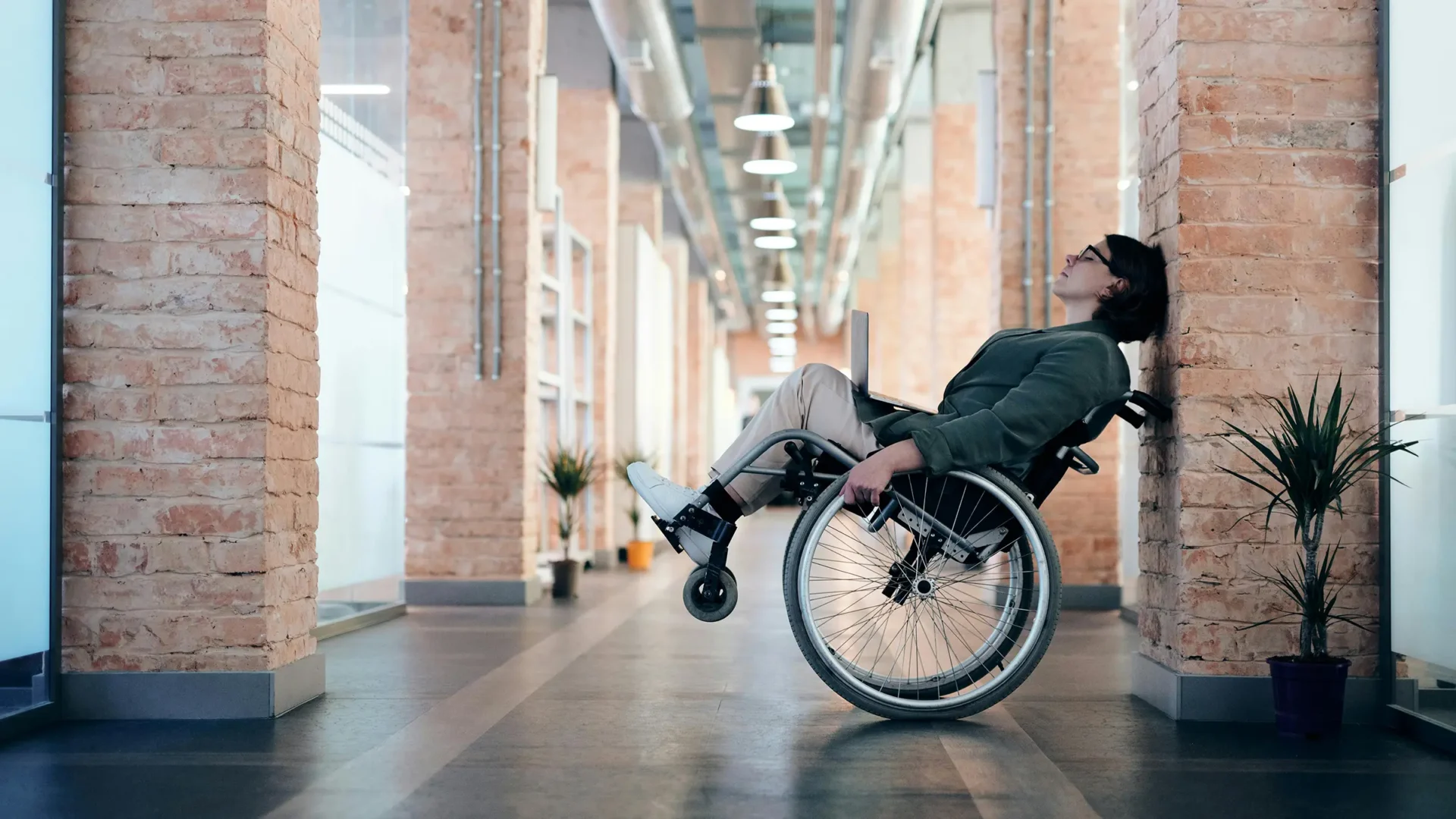The ways people physically move their bodies.

Physical makeup can affect the ways a person can move. Some people move fluidly, such as trained athletes and dancers. Some people effortlessly glide because they have mastered using their wheelchairs. Others are severely hindered by a physical condition, so their movements are slower and require a great deal of concentration to complete. Consider how people walk. Some people shuffle when they walk. Others stand upright and walk with speed and precision. People can be judged based on how they move, including their posture. Whether intended or not, “body language” and gestures communicate messages that receivers use to make conclusions about others.
Researching Body Movements
Researching a person’s range of mobility can inform ways to design outcomes so they are accessible and usable.
Questions to Ask
- How do this person’s movements suggest they are having a difficult or easy time using a design outcome?
- What caused this person to move this way?
- How does the design outcome help people move or hinder movements?
Look For
- People putting a lot of effort (physical and concentration) into their movements.
- Complaints about physical effort
- How efficiently people move
- Ways movements suggest emotional states, like dancing or high fives
Keywords
Sources
Design
Lenz, E., Hassenzahl, M., & Diefenbach, S. (2019, May 4–9). How Performing an Activity Makes Meaning. Proceedings from CHI’19.